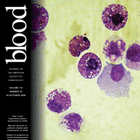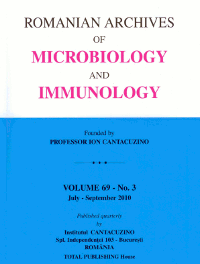
Celiac.com 06/14/2010 - Enteropathy associated T-cell lymphoma (EATL) is a rare type of for which there are currently no standardized diagnostic or treatment protocols.
A team of researchers recently evaluated enteropathy-associated T-cell lymphoma and compared standard therapies with a novel regimen including autologous stem cell transplantation
Celiac.com Sponsor (A12):
The research team included Michal Sieniawski, Nithia Angamuthu, Kathryn Boyd, Richard Chasty, John Davies, Peter Forsyth, Fergus Jack, Simon Lyons, Philip Mounter, Paul Revell, Stephen J. Proctor, and Anne L. Lennard.
The team describe EATL in a population-based setting and evaluates a new treatment with aggressive chemotherapy and autologous stem cell transplantation (ASCT).
In 1979, the Scotland and Newcastle Lymphoma Group began to collect data on all patients newly diagnosed with lymphoma in the Northern Region of England and Scotland.
The research team reviewed the records of patients diagnosed with EATL from 1994 and 1998. 54 patients had features of EATL. The overall annual rate was 0.14/100,000.
Doctors treated 35 patients with systemic chemotherapy (mainly anthracycline-based chemotherapy) and with surgery. They treated 19 patients with surgery alone. Patients showed a median progression-free survival (PFS) of 3.4 months and overall survival (OS) of 7.1 months.
Starting in 1998 patients eligible for intensive treatment received the novel regimen IVE/MTX (ifosfamide, vincristine, etoposide/methotrexate)–ASCT, with a total 26 patients included. PFS and OS at the five year mark were 52% and 60%, respectively, a substantial improvement over the historical group treated with anthracycline-based chemotherapy (P .01 and P .003, respectively).
In contrast to the poor outcomes when treated with conventional therapies, the IVE/MTX-ASCT regimen offers acceptable toxicity and significantly improved outcome for cases of EATL.
Researchers are affiliated variously with the Department of Haematological Sciences, Newcastle University, Newcastle upon Tyne; the Department of Haematology, Craigavon Area Hospital, Portadown; the Department of Haematology, University Hospital of North Staffordshire, Stoke on Trent; the Department of Haematology, Western General Hospital, Edinburgh; the Department of Haematology, Raigmore Hospital, Inverness; the Department of Haematology, Harbour Hospital, Poole; the Department of Haematology, Sunderland Royal Hospital, Sunderland; the Department of Haematology, University Hospital of North Tees, Stockton on Tees; and the Department of Haematology, Staffordshire General Hospital, Stafford, United Kingdom
Source:
-
Open Original Shared Link







Recommended Comments
There are no comments to display.